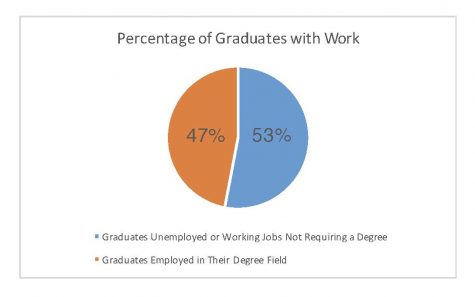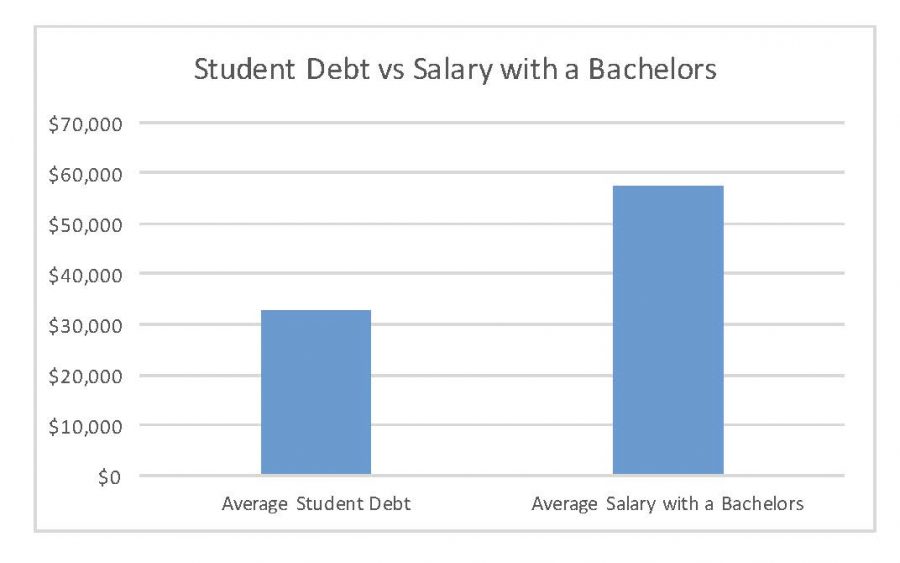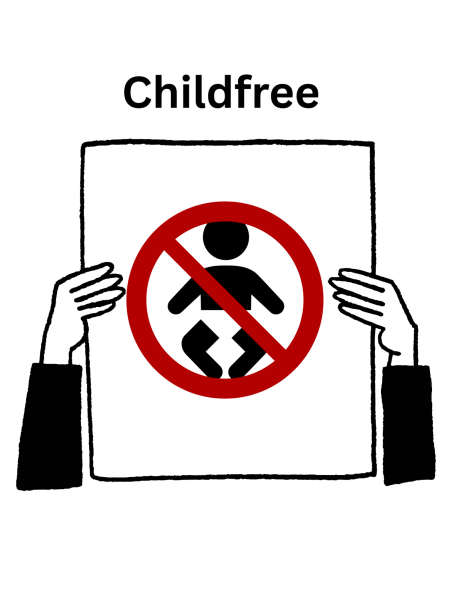Higher education: Is it worth the cost?
The nation’s student loan debt has entered the trillions, yet college is portrayed as one of the only tickets to success. Sources: SHRM and Forbes.
March 4, 2020
Students fresh out of high school are convinced that attending a four year college is the correct route when many of these students don’t know what they want to do with their lives. “Broke college student” is a phrase we all seem to be familiar with because that is the reality for a lot of college students, but should it be?
Universities seem to charge students for everything, leading students to decide whether they can attend college. Higher education seems to be great, but only at the expense of the students.
Higher education may feel like a trap. Students are expected to go to a university for four years for their benefit, but many students just end up drowning in debt. In the 2018-2019 academic year at CSU Bakersfield, tuition for a student with more than 6 units is $3,652. According to Collegefactual.com, “In 2018 – 2019, California State University – Bakersfield students spent $9,823 for housing and $3,965 for dining.” This totals out to a whopping $17,440 for the year, and the situation may not even be worth it to some.
“I don’t think living on campus is necessarily worth it because you can live off campus for cheaper. There was a time where we didn’t have hot water, so we had to shower in cold water. That went on for about three weeks during fall semester,” Lisette Garcia, a CSUB freshman, said.
How can schools charge students above their means and still have a huge fault like no hot water? These expenses do not even include other living expenses, transportation, or textbooks and class materials. And the cost of tuition is increasing every year, making the total cost of college amount to more than four times the cost of a student’s first year. These high prices ultimately force students to drop out.
An overpriced higher education does not always equal success. An expensive higher education will not guarantee a job. Often times, the jobs desired require necessary skills and experience not gained in college. Instead, students are told to go back to school to achieve a Masters or PhD, which would only put them in more debt.

More than half of college graduates will be unemployed or employed in a field that does not require a college degree. Source: University of Washington.
“I always think about student debt and question whether or not it’s going to be worth it, and I question how difficult it’s going to be to pay it off in the end,” Jaecel De Guia, a junior who transferred to CSUB, stated.
De Guia acknowledges that the debt she is accumulating makes her anxious.
According to Anthony Carnevale, director of the Georgetown University Center on Education and the Workforce, eight out of ten students work while in college.
This may be helpful for bills, but it can be mentally and physically draining for students. Not only do these students have less time to study or be in class, they have less time to rest and regain energy. Students who are studying less or are enrolled in fewer classes may be less likely to complete college in four years, or possibly at all.
“You could be worse off in the long run if your job is so overwhelming that you fail classes or quit the academic program all together,” Carnevale wrote in an article entitled “Working in college might hurt students more than it helps” stated CNBC.
Some students may choose their major in order to obtain financial stability; many of these students feel that they must choose between a major that will get a well-paying career and a major that may not help them land a job that would bring in a steady income in the field they love.
“Research suggests that even if we let people decide how much they should earn, they would probably not enjoy their job more,” business and leadership author Tomas Chamorro-Premuzic wrote for the Harvard Business Review.
Although debts may be paid off faster, it may be better to choose a major that one is more passionate about for mental health purposes.
Although students are going to college for an education, an education may not be readily available. Often times the major they’ve been accepted into is too impacted, causing students to be waitlisted, which forces them to put their education on hold. Some students may even get frustrated enough with the lack of classes or professors to end up changing their majors altogether. This causes the student to end up with even more debt because of the time they already put into another major.
“Broke college student” should not be a phrase we are all comfortable with. From the local level to the national college costs, students are finding themselves drowning in debt before they have even crossed the graduation stage. The student debt crisis remains a focal point of campaigns across the nation, and yet there is no true solution in sight.









